Invited Talk
Invited Report 1: Cybersecurity Situational Awareness: Technology, Systems, and Applications
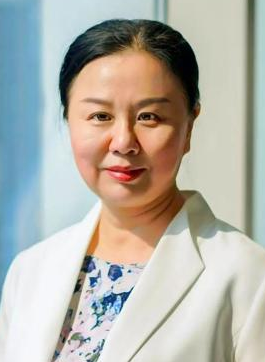
Speaker: Yan Jia
Affiliation: National University of Defense Technology
Abstract: Starting from the concept and importance of cybersecurity situational awareness, this report first presents three major application requirements for situational awareness: content security public opinion event situational awareness, system security attack event situational awareness, and offensive-defensive confrontation situation assessment. It then outlines three major challenges in addressing these application requirements: accuracy, real-time performance, and comprehensiveness. Subsequently, it presents the multi-dimensional association cognitive model MDATA and its development technologies to solve these challenges. Finally, it demonstrates the applications and effectiveness of related theories and technologies.
Bio: Yan Jia is a researcher at the National University of Defense Technology, currently serving as the principal investigator of national major research projects and chief scientist of the National Engineering Research Center for Industrial Control System Information Security Technology. He also serves as Vice President of the China Chinese Information Society. His main research focuses on the application of artificial intelligence and big data analysis technologies in cybersecurity. As the principal investigator, he has undertaken and led over 20 national major/key projects including National 863 Program, 973 Program, and National Natural Science Foundation projects. He has won 5 National Science and Technology Progress Awards (Second Class), published over 320 papers indexed by SCI and EI, authored 8 monographs, and holds over 120 authorized invention patents.
Invited Report 2: Large Model-Driven New Paradigm for Scientific Discovery

Speaker: Tieyan Liu
Affiliation: Zhongguancun Academy
Abstract: The rapid development of artificial intelligence is profoundly reshaping the fundamental paradigms of natural science research. This report focuses on large model-driven scientific discovery, revealing its transformative logic through three representative works: (1) BioGPT, leveraging the powerful semantic understanding capabilities of large models to achieve precise knowledge mining in biomedical literature and data, providing intelligent analysis tools for core research scenarios such as gene function analysis and disease risk prediction, breaking through the efficiency bottlenecks of traditional biological research; (2) MolXPT, innovatively constructing a text-molecule fusion pre-training framework that deeply associates chemical literature semantics with molecular structures, excelling in tasks such as molecular property prediction and text description-to-molecular structure conversion, breaking the limitations of molecular modeling dependence on single data types; (3) NatureLM, integrating knowledge from multiple natural science fields to establish a mapping system between natural phenomena patterns and human language expression, providing unified intelligent tools for interdisciplinary research such as materials development and drug design, significantly expanding the boundaries of scientific exploration. These three works collectively demonstrate that large models are driving scientific discovery from experience-driven to data-intelligent, from single-discipline to cross-disciplinary paradigm leaps, injecting new momentum into natural science research.
Bio: Tieyan Liu is the Party Secretary and President of Beijing Zhongguancun Academy, Chairman of the Board of Zhongguancun Institute for Artificial Intelligence, and an internationally renowned artificial intelligence expert. He serves as a director of the Chinese Information Processing Society and a member of the Academic Committee of Changping Laboratory. He is an IEEE Fellow, ACM Fellow, and AAIA Fellow. He previously served as Deputy Director of Microsoft Research Asia and Chief Scientist of Microsoft Research for Science Intelligence. Dr. Liu has long been engaged in research in information retrieval and artificial intelligence, achieving remarkable accomplishments in both academia and industry. He has made tremendous contributions to promoting the integration between machine learning and information retrieval, and to using artificial intelligence to assist scientific discovery and industrial development. He was recognized by the International Open Evaluation Committee as one of the 100 most important AI scholars globally since 1943. He has served as adjunct professor/doctoral supervisor at multiple universities including Carnegie Mellon University, Tsinghua University, University of Science and Technology of China, and Huazhong University of Science and Technology, and as honorary professor at the University of Nottingham.
Invited Report 3: Prediction in Humans and Machines

Speaker: Colin Phillips
Affiliation: University of Oxford
Abstract: Much recent NLP work is based on models that emulate human language (to a greater or lesser extent) by means of a prediction process. For many years, our group has been studying how humans do the same thing, sometimes successfully, sometimes less so. In this talk I will explain some recent findings, including surprising contrasts between tasks involving speaking and understanding, and how language technology supports our work on trying to understand better how human language works.
Bio: Colin Phillips is Professor of Linguistics at the University of Oxford (since January 2024) and a Professorial Fellow at Somerville College. From 2024 to 2027, he also serves as Faculty Board Chair (Head of Department) for the Faculty of Linguistics, Philology and Phonetics. His research spans multiple areas of linguistics, with a broad focus on psycholinguistics. He is fascinated by the rich structure of human language, particularly the countless details operating below conscious awareness. His work seeks to understand how children acquire this complex system and how linguistic structures are cognitively encoded and processed from neuroscientific perspectives. These questions have led him to employ diverse methodologies, study multiple languages, and collaborate across research fields with numerous students. Recent research directions for his team include linguistic illusions, linguistic predictions, and the relationship between speaking and understanding. Phillips has long advocated for building connections across diverse areas of language study under the umbrella of Language Science. Over the past 25 years, he has devoted significant effort to supporting and promoting interdisciplinary language research, spanning fields from education to engineering. This includes a focus on preparing students for interdisciplinary work and diverse career paths, as well as communicating language science to broad audiences.
Invited Report 4: Industry-Education Integration and Technological Innovation in the Intelligent Era: Shandong Practice — Taking the Development of National Center for New Energy Digitization as an Example
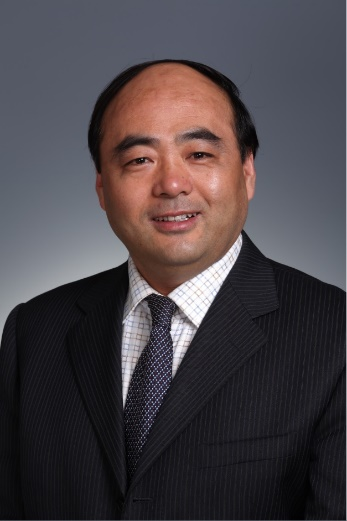
Speaker: Chenghui Zhang
Affiliation: Shandong University
Abstract: Computing power is the new quality productive force in the digital economy era, with enormous computing demands leading to massive power consumption. Electricity (energy) is the crucial material foundation upon which human society depends for survival and development. Building a new power system with new energy as the main body is both a national strategy and global consensus. Digitization, intelligentization, and networking are fundamental guarantees for the efficient, safe, and stable operation of new power systems, urgently requiring powerful computing power as key support. In other words, without electricity there is no computing power, and without stronger computing power there cannot be better electricity. This report first reviews and discusses the interdependent relationship between computing power and electricity, analyzing their development challenges and opportunities. It then proposes a new energy system driven by the integration of computing power and electricity with virtual-real fusion — Meta-Energy system, and further elaborates on several key scientific issues facing this system, such as modeling and simulation, intelligent optimization and control. This new paradigm of deep integration between computing power and electricity will promote green and low-carbon computing power development and drive the upgrade and digital transformation of power systems. Finally, it describes Shandong University's practical exploration in the field of power-computing integration innovation and the major engineering practice of the new three-loop control technology system for new energy systems.
Bio: Chenghui Zhang is Vice Chairman of the Academic Committee and Chair Professor at Shandong University, Dean of the School of Control Science and Engineering, Director of the National Engineering Center for "New Energy Control", IEEE Fellow, Vice President and Fellow of the Chinese Association of Automation, Fellow of the China Power Supply Society, Distinguished Professor of the Changjiang Scholars Program of the Ministry of Education, National Ten Thousand Talent Program Teaching Master, and National Hundred Thousand Ten Thousand Talent Project awardee. He serves as Chairman of the New Energy System Control Professional Committee of the Chinese Association of Automation, member of the 8th Academic Degrees Committee of the State Council (Control Group), and member of the Information Science Department of the Ministry of Education Science and Technology Committee. His team has been selected for the National Natural Science Foundation Innovation Research Group for "New Energy Generation System Optimal Control" and the National Yellow River-style Teacher Team of Universities. He mainly conducts research on new energy system control. He has received 5 national science and technology and teaching achievement awards (all ranked first), including 3 National Science and Technology Progress Second Class Awards and 2 National Teaching Achievement Second Class Awards. He has also received the He Leung Ho Lee Foundation Science and Technology Progress Award, Guanghua Engineering Science and Technology Award (Chinese Academy of Engineering), National Innovation Excellence Award, Shandong Province Supreme Science and Technology Award, and Baosteel Outstanding Teacher Special Prize. He has also been honored as National Advanced Worker, National Outstanding Returned Overseas Chinese and Family Member, and Most Beautiful Science and Technology Worker in Qilu. He was selected as a valid candidate for the Chinese Academy of Engineering in 2021 and 2023.
Invited Report 5: Interdisciplinary Integration Promotes Innovative Development of Intelligent Robots

Speaker: Lining Sun
Affiliation: Soochow University
Abstract: Currently, intelligent equipment represented by robots is emerging in large quantities, becoming an important support for the digital economy and advanced manufacturing. The empowerment of new technologies such as artificial intelligence, industrial internet, and big data is accelerating the innovative development of robot technology. Based on this development status, this report will share frontier technologies such as bionic robots, micro-robots, bio-mechanical-electrical integration, intelligent perception and human-robot interaction under the deep integration of multiple technological means, as well as the development trends of digitalization, networking, and intelligentization. It will also propose targeted development suggestions around the needs of intelligent transformation and digital transformation of China's manufacturing industry.
Bio: Lining Sun is a Distinguished Professor at Soochow University, Dean of the School of Mechanical and Electrical Engineering, doctoral supervisor, recipient of the National Distinguished Young Scholar Fund, National "Tenth Five-Year Plan" 863 Program Robot Technology Theme Expert, Chief of the National "Tenth Five-Year Plan" 863 Program MEMS Major Project General Group, and expert of the National "Eleventh Five-Year Plan" 863 Program Advanced Manufacturing Technology Field Expert Group. He currently serves as an expert of the National Ministry of Science and Technology Service Robot Key Science and Technology Special Project General Group, National "Twelfth Five-Year Plan" 863 Program Micro-Nano Manufacturing Technology Theme Expert, Chairman of Suzhou Boshi Robot Technology Company, and Director of Jiangsu Provincial Key Laboratory of Advanced Robot Technology. He holds academic positions including Vice Chairman of the Micro-Nano Devices and Systems Technology Branch of the China Instrument and Meter Society, Executive Director of the China Micro-Nano Technology Society, and Vice Chairman of the Robot Committee of the Chinese Association of Automation. He mainly conducts research and development in industrial robots and mechanical-electrical integration equipment, micro-nano manipulation robots and equipment, medical and special robots. His research has achieved important results in advanced robot mechanisms, perception, control, system integration and other frontier and core key technologies. He has presided over and completed more than 20 national major/key projects including National 863 Program, 973 Program, and National Natural Science Foundation projects. He has won 2 National Science and Technology Second Class Awards and 3 Provincial Science and Technology First Class Awards, published over 300 academic papers, and holds over 20 authorized national invention patents.
Invited Report 6: The Way Forward and Backward for Computational Linguistics
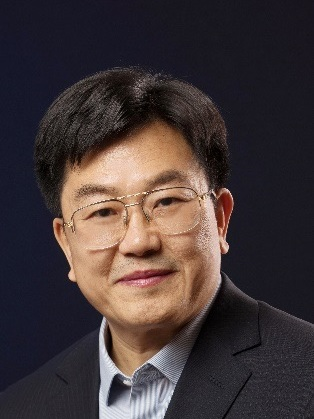
Speaker: Chengqing Zong
Affiliation: Institute of Automation, Chinese Academy of Sciences
Abstract: Since 2023, the rapidly developing large language models have had enormous impacts on various disciplines and research directions, bringing new opportunities while presenting unprecedented challenges. So, how should the fields of computational linguistics (CL) and natural language processing (NLP), which are the "birthplace" of large language model technology, face this challenge? How should we position the research directions of this technological field? Where are the ways forward and backward for the future development of NLP/CL? This report will discuss these questions and present the speaker's shallow understanding and thoughts.
Bio: Chengqing Zong is a researcher and doctoral supervisor at the Institute of Automation, Chinese Academy of Sciences, Class A Professor at University of Chinese Academy of Sciences, IEEE/ACL/CAAI/CCF Fellow, and Foreign Member of the European Academy of Sciences. He mainly conducts research in natural language processing, machine translation, and language cognitive computing. He has presided over over 10 projects including key projects of the National Natural Science Foundation and National Key R&D Program projects, published over 200 papers, and authored 6 monographs and 2 translations. He currently serves as ACL President and Vice President of the China Chinese Information Society. He previously served as President of the Asian Federation of Natural Language Processing (AFNLP) and General Chair of the international top academic conference ACL 2021. He has received National Science and Technology Progress Award Second Class, Beijing Science and Technology Progress Award First Class, and Ministry of Education Natural Science Award Second Class. He has been honored as Beijing Outstanding Teacher, Outstanding Supervisor of the Chinese Academy of Sciences, and Li Pei Teaching Master of UCAS. He enjoys special government allowances from the State Council.
Invited Report 7: Reliable Task-Oriented Agents Based on Language Models
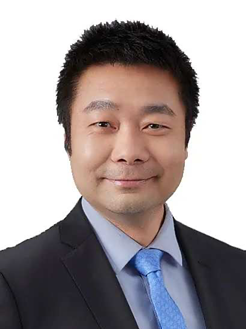
Speaker: Kai Yu
Affiliation: Shanghai Jiao Tong University
Abstract: Large language model agents have attracted widespread attention due to their general understanding and generation capabilities, and are considered capable of achieving general task execution intelligence. However, due to the probabilistic generation nature of language models, language model agents exhibit various unexpected behaviors, leading to execution uncertainty and extremely low performance and efficiency in real scenarios. The classic approach attributes such phenomena to "hallucination" and attempts to improve the output accuracy of large models through algorithms, hoping to reduce erroneous hallucinations and decrease output uncertainty, thereby enhancing agent execution capability. This report proposes a different theoretical framework from the perspective of cognitive dialogue interaction, arguing that "uncertainty cannot be eliminated" should be the basic premise for improving the reliability of task-oriented agents. The elimination of reliability depends not only on improving the accuracy of expected behaviors but also on the ability of interactive behaviors to handle uncertainty. This report redefines the concept of execution reliability for task-oriented agents, discusses large models' modeling of their own uncertainty, and discusses methods for improving the execution reliability of task-oriented agents. Additionally, within the framework of complex tool calling, it discusses tool hallucinations and methods for improving the reliability of complex calling.
Bio: Kai Yu is a Distinguished Professor and doctoral supervisor in the Department of Computer Science and Engineering at Shanghai Jiao Tong University, and co-founder and Chief Scientist of AISPEECH. He is a recipient of the National "Ten Thousand Talent Program" Science and Technology Innovation Leading Talent and previously received the National Natural Science Foundation Young Outstanding Researcher Award and Shanghai "Eastern Scholar" Distinguished Professorship. He holds a bachelor's and master's degree from the Department of Automation at Tsinghua University and a PhD from the Department of Engineering at the University of Cambridge. He has long been engaged in research and industrialization in artificial intelligence fields including intelligent speech and language processing, human-computer interaction, pattern recognition, and machine learning. He has achieved a series of internationally advanced research, engineering, and industrialization results in speech recognition and synthesis, natural language understanding, spoken dialogue systems, and cognitive human-computer interaction. He has published over 200 papers in top international conferences and journals, received best paper awards from top journals such as Computer Speech and Language and Speech Communication, and won first place in multiple top international conferences like InterSpeech and various international evaluations in speech recognition and dialogue systems. He is a Senior Member of the IEEE, the first IEEE Speech and Language Processing Technical Committee member from mainland Chinese universities (2017-2019), Associate Editor of IEEE Transactions on Audio Speech and Language Processing, and has served as Program Committee Chair for InterSpeech and other international conferences, and Area Chair for ACL, EMNLP and other international conferences.
Special Report: Jinan Supercomputing: Building Efficient Computing Power Infrastructure for the Era of Large Models
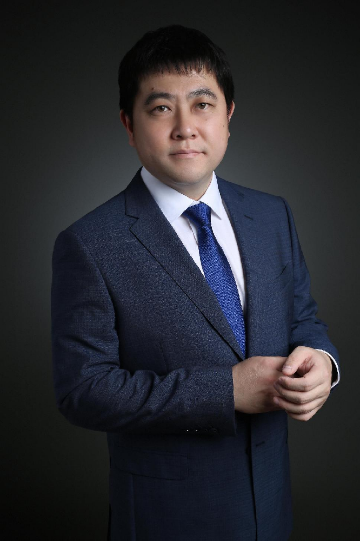
Speaker: Xiaoming Wu
Affiliation: Qilu University of Technology (Shandong Academy of Sciences)
Abstract: As artificial intelligence advances into a new development stage centered on large models, efficient and powerful computing infrastructure is the key cornerstone supporting their training, inference, and application deployment. The National Supercomputing Center in Jinan is committed to building computing infrastructure for the era of large models, actively constructing supercomputing ecosystems and supercomputing internet, conquering key technologies such as multi-element computing power cross-domain access and unified management, heterogeneous resource intelligent perception and collaborative scheduling, business process orchestration and collaborative computing, unified storage and data flow. It has achieved unified management and scheduling of heterogeneous computing resources, providing solid and reliable computing power supply and service guarantee for large model research and development and applications, and has become an important supporting force driving the leap in China's artificial intelligence industry and the development of new quality productive forces.
Bio: Xiaoming Wu is a researcher, holds a doctorate in engineering, and is a doctoral supervisor. He is a Taishan Scholar Young Expert and has made outstanding contributions as a young and middle-aged expert in Shandong Province. He currently serves as Director of the Computer Science and Technology Faculty at Qilu University of Technology (Shandong Academy of Sciences), Director of Shandong Computer Center (National Supercomputing Center in Jinan), Dean of the School of Computer Science and Technology, and Dean of the School of Cyberspace Security. He also serves as President of the Shandong Digital Economy Association, Supervisor of the Shandong Commercial Cryptography Association, and Executive Director of the Shandong Computer Society. His main research areas include high-performance computing, industrial internet, big data analysis, and information security. Projects he has led have won the China Patent Excellence Award and the Shandong Patent Award First Class. He has received the Shandong Science and Technology Progress Award First Class once and Second Class once. As Chief Scientist, he has presided over National Key R&D Program projects, and has led over 20 national and provincial key research projects including National Science and Technology Support Program sub-projects, National Internet of Things Development Special Projects, and Shandong Major Science and Technology Innovation Engineering projects. He holds over 30 authorized invention patents and has published over 50 high-quality papers.